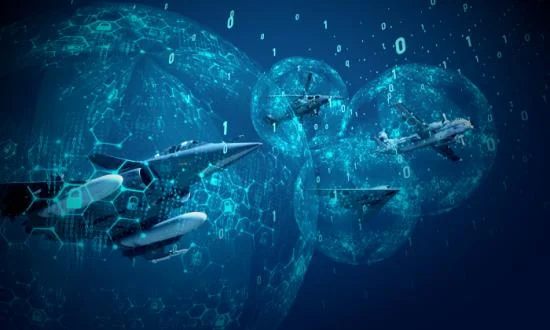A century ago it was simple: combat pilots would get a briefing, look at a map, take off, and use a compass to search for their target. Stopping them meant visual identification and direct attack. Flying aces of World War One were connected only to their seats. Their planes had few controls and no communication equipment.
Not so today. Flying a combat plane now is like steering a giant armed computer that is connected to all elements of the command structure, receiving and transmitting streams of useful data. It is far more precise, efficient, and safe – but only if its complex systems are cyber secured. Enemies now lurk not only in the sky; they can be anywhere. They can compromise communications or redirect and bring down a plane by hacking into or jamming its signals.
Avionic cybersecurity is now essential and must be constantly upgraded to meet new challenges. Management of Continued Security (MCS) – or vulnerability management – has become as important as new hardware and software, into which it must be integrated.
Thales has seen the future and is using its connectivity, cybersecurity, and artificial intelligence (AI) expertise to provide monitoring of its own equipment or that of other manufacturers. Performing constant software and hardware analysis, it searches for weak links and monitors evolving threats using AI language analysis. The customer can safely transmit, collect, and analyse data to better prepare missions, reduce technical and human risks, and limit hardware downtime.
Thales can also provide customised services to strengthen the security of systems that have already been deployed or MCS solutions that ensure the safety of aircraft throughout their entire life cycle.
“Deploying cybersecurity updates and patches while providing regular airworthiness systems support gives the customer added confidence, while saving time and money,” adds Eric Amgar.




